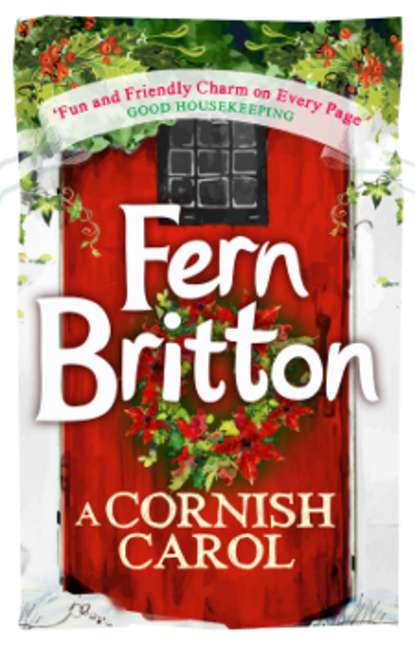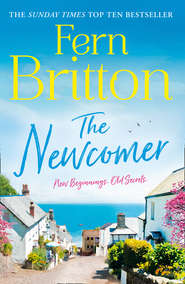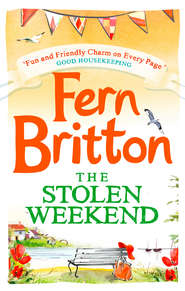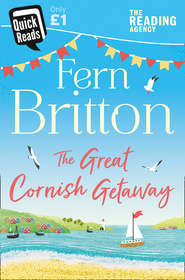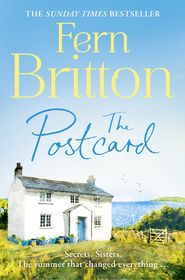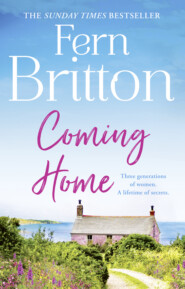По всем вопросам обращайтесь на: info@litportal.ru
(©) 2003-2024.
✖
Hidden Treasures
Автор
Год написания книги
2018
Настройки чтения
Размер шрифта
Высота строк
Поля
He took another large slug of sherry. Helen, feeling that she was about to hear his life story, topped up his glass, and then her own. She waited.
He turned his chocolate-brown, magnified eyes to hers, and blew out his slender cheeks.
‘I had a disappointment, you see. A few years ago now, but I still think of her. We met on a trip to the Holy Land. One of those organised excursions, you know. We sort of paired up and found ourselves sitting next to each other on the coach each day. Her name is Denise. She’s an RE teacher. Or was. I’m not sure what she’s doing now. Anyway, I knew I had fallen in love with her and we began writing to each other when we got home. She was in Scotland, not far from her parents. We ended up speaking on the phone every day and after a couple of months we met up in Coventry. The cathedral had a special service and we both thought it was a good halfway point. It was a marvellous day. The service was really inspiring. Wonderful music and singing. I got caught up in the elation of it all and over supper I asked her to marry me.’ He looked down at his worn cuffs.
‘And she said no?’ asked Helen.
‘Oh no, she said yes! It was all so exciting. I walked her to her B&B and said goodnight, and in the morning we met briefly at the station before I came back here and she went back to Scotland to make the wedding arrangements.’
‘So what happened?’
‘The night before the ceremony she said she felt unwell and didn’t want to go to the rehearsal. I sat with her and she was crying. I suggested calling the doctor, but she stopped me. She told me she wasn’t ill, it was just that …’ He tipped his head back and looked at the kitchen ceiling. ‘It was just that she didn’t love me enough to marry me after all.’
Helen leaned forward and held his hand as it cradled the sherry glass.
‘I am so sorry,’ she said.
‘I’m not looking for sympathy.’ He took out a hanky and wiped his glasses. ‘But it was a blow. I came here a very young man, twenty-one, freshly ordained and full of heroic ideals. A job where I could make a difference to society, the opportunity to meet my soul mate. The vicarage is such a lovely family house. It would come alive with people in it. Children … that sort of thing.’
They both sat in silence for a moment. Finally Helen said, ‘I think she made a big mistake. I bet she regrets it every day.’
‘Well that’s kind of you, but … it wasn’t God’s will. So,’ he stood up, ‘church on Sunday. I give communion at the ten o’clock service, if you’re up to it?’
‘Yes, I’d love to.’
Simon buttoned up his coat and after apologising again for frightening her earlier in the garden, walked down the path. As he turned towards the vicarage, her eye was caught by Polly waving at her from her window next door and giving her the thumbs-up. Helen returned the thumbs-up and waved back. Two minutes later, back inside and with a fresh glass of sherry in her hand, she wondered what Polly had meant by her gesture. Surely she hadn’t thought that there was anything between her and Simon? They’d only just met. She laughed at the idea – what a joke!
6
The following day was Saturday. Helen had survived two weeks of her new life and hadn’t once wanted to run back to London. It was a gorgeous day and the September sunshine flooded into her bedroom as she drew open the curtains. Today she intended to rig up a washing line and get some laundry out.
The nearest hardware store was in Trevay so she decided to nip over and treat herself to breakfast as well.
The five-mile drive was a pleasure in itself. Up the steep hill out of Pendruggan, past the Dolphin where she tooted at Dorrie as she swept the leaves from the pub porch, along the cliff road where she could see the surf whipping off the ocean and then down another sharp incline into Trevay. With the roof off the little Mini, she revelled in the splashes of sunlight that dappled the lanes. The local drivers were so different to London ones. They were happy to reverse up the road where it was too tight for two cars to pass, and if she returned the favour they always thanked her. Quite unlike Gray, who was horrendous to drive with. As a passenger he was a bully and as a driver, a dictator. He once shouted at an already nervous Helen when she accidentally curbed the wheels of his latest gas guzzler, ‘YOU should NOT have a LICENCE!’
Her journey to Trevay ended without incident and she arrived safely in the harbour car park. She got out and left the car, roof down, doors unlocked, to take in the beauty of the ancient fishing port. Above her, and overlooking the harbour was the Starfish Hotel. Built just before the First World War to accommodate the holidaymakers flocking to Cornwall by train, it had fallen on hard times after Dr Beeching closed the station in the sixties, and cheap, foreign package holidays became all the rage. No rail passengers meant fewer holidaymakers and the old hotel had quietly been allowed to run down. But about fifteen years ago it had been bought up by a stylish and very wealthy widow who persuaded a young, sexy TV chef to take on the kitchens. It was an instant success and was now the shining template for all other faded seaside hotels. Helen thought how much Gray would love it, if and when he came down.
She walked across the road towards the harbour wall. The tide was out and the little fishing boats were resting on their keels in the mud. A seagull swooped down and with a cackle collected up a dead crab from the silt.
Her first stop was the local chandlers and ironmongers. The shelves were lined with cardboard boxes full of everything any self-respecting sailor or builder could want. You could even buy a single screw or washer if necessary. She walked up and down the three aisles until she found a twelve-metre ball of yellow washing line. She took it to the counter and asked the young man what he would recommend to fix it to the old brick privy wall and the back door jamb. He found her some metal screw eyes and swivelly things with some masonry nails and a metal plate with a loop in it. She thought she understood the instructions and tried to pay particular attention when he showed her a useful knot that would withstand a force ten gale.
Pleased with her purchases and the young man’s faith in her abilities, Helen left the shop and walked along the road to the inner harbour. She stood for a couple of moments looking at the way the sun sparkled on the emerald-green water. An older couple with a Dachshund stopped and did the same. The three of them exchanged pleasantries and Helen was introduced to Stuart, the dog, who, after sniffing Helen’s hand, turned and cocked his leg on her jeans. The couple didn’t seem to notice and, saying cheerio, ambled off towards the town.
As the warm liquid travelled into her sock and trainer, she shook her foot and glared at the nonchalantly retreating back of Stuart, swearing under her breath. She heard someone laughing, turned towards the sound and found herself looking straight into the eyes of one of the most handsome men she’d ever seen. Tall and broad-shouldered, he was wearing a tattered and faded red sailcloth fishing smock. A blue-and-white handkerchief was tied round his neck, accentuating the deep fathoms of his blue eyes. A small gold earring glinted in his right ear and his jet-black corkscrewed hair was ruffled in the wind.
‘Did you see that?’ she asked.
‘Oh yes,’ he replied, his full mouth and white teeth still laughing. ‘That dog must be an excellent judge of character.’
She laughed too. ‘Thanks! I feel as if I have half a gallon of pee in my shoe, but it’s probably only a teaspoon.’
‘Well, I hope your day improves.’ And he walked off in the same direction as the incontinent Stuart, leaving Helen feeling confused. Had she just been teased or insulted?
She couldn’t decide whether to head back to the car and go home or nip into a shop for a cheap pair of beach shoes, then look for breakfast. Beach shoes and breakfast won. When she came out of the shop, her trainers and socks tied up inside two plastic bags, she left the harbour behind her and walked into the little town. The streets were narrow and traditionally quaint. Some local businesses like the butcher, baker and greengrocer still survived, but most of the shops were geared to the wealthier holiday visitors. She enjoyed half an hour of window shopping, but didn’t succumb. There’s plenty of time for me to do shopping here – the rest of my life! she told herself.
Finally she arrived at an all-day café that she’d been to once with Dorrie, when she had treated Dorrie to lunch as a thank you for all her help and input into Gull’s Cry. The tables were set outside and she parked herself at a table for two in a sunny, sheltered corner. The waiter came out and took her order for a cappuccino and full Cornish breakfast (just the same as an English one, only better, he said).
Tilting her head up to the sun, Helen closed her eyes and allowed herself to relax. She was aware of how her new shoes touched the cobbles beneath her; the warmth of the sun on her cheeks. Then she tuned in to the sounds around her. She heard voices, a van door slide open, the clip-clop of a woman’s shoes on the cobbles and … a male voice she thought sounded familiar, coming from inside the café.
‘I’ll have a black coffee, boy. Three sugars. How’s the summer been for you?’
She heard her waiter’s voice: ‘Handsome. But I’ll be glad when the visitors have all gone ’ome.’
‘The last six weeks have been heaving, haven’t they?’ the familiar voice responded. ‘You’d think these grockles would want to do more than just mooch about spending too much money in the shops and eating cream teas and fish and chips. Still, if it pays for us to have a good winter, who cares. I saw one just now. Looked arty, like. Expensive handbag and haircut – you know the type. Then a dog peed on her leg. You should’ve seen her face! Proper townie and no mistake.’
Helen heard her waiter laugh. ‘I’d ’ave paid good money to see that!’
The laughter continued. Her veins felt as if they were being flushed through with ice-cold water and yet her face was burning. She reached down to her Mulberry handbag and fumbled for her Tom Ford sunglasses. She must stick out like a sore thumb.
The waiter came back out with her coffee and breakfast, followed immediately by the handsome man she had met on the harbour. His dark, tightly curled hair bounced in the breeze, one hand holding a takeaway cup, the other shoved in his pocket.
‘Bye, Bernie.’
‘Bye, Piran. Look out for those leaky dogs!’ the waiter called to him and, laughing, turned back into the café.
‘Bastard. Bloody bastard,’ muttered Helen, turning her face so that he couldn’t see her.
She ate her breakfast and drank her coffee as quickly as possible. So much for enjoying a leisurely hour people-watching.
She paid the bill, left a minimal tip and drove home, fuming all the way.
*
On her doorstep there was a large bunch of rusty-coloured dahlias, wrapped in newspaper and tied with green twine. A small note read:
Thank you for listening and welcome to our village.
Regards, Simon Canter
Smiling at his thoughtfulness, she carried them into the kitchen and dug out an old Cornishware jug to put them in. They looked just right sitting on the stone hearth of the fireplace.
After putting some laundry in the machine, including the revolting socks and trainers, she collected her brand-new tool box from under the sink and took her new washing line and ironmongery outside.
It was incredibly liberating not to have Gray breathing down her neck, telling her she was getting it all wrong. She hammered and screwed and swore to her heart’s content, not caring when she chipped a bit of brick or drilled a hole in the wrong place, and it was fun. After about an hour she tested the whole construction. The knots seemed safe enough and everything appeared secure on the privy wall and back-door frame.
Ten minutes later, she’d hung the first batch of washing out on the line and she couldn’t have been more pleased with herself if she’d climbed Machu Picchu.
Back inside, she settled down in her rocking chair by the Aga with a pot of tea and phoned Chloe. They spent a lovely hour catching up with each other’s news and Chloe fell about laughing at the story of the dog wee. ‘Everyone’s a critic, Mum!’





